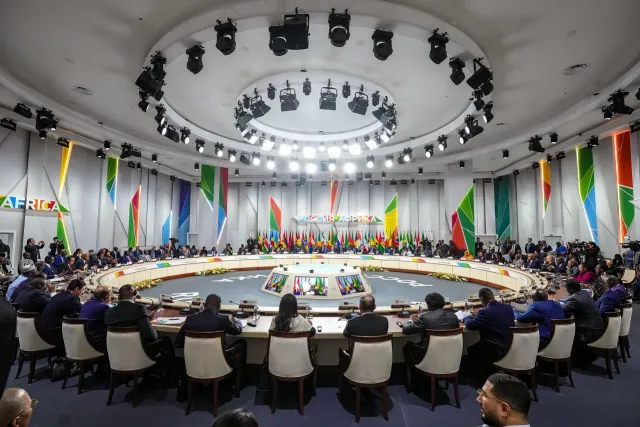
Our Correspondent | Africa Guardian
At the inaugural ministerial conference in Sochi, Russia, foreign ministers from Russia and African nations have jointly advocated for a fair and equitable cybersecurity system, focusing on the responsible use of information and communications technologies (ICTs). The ministers emphasized the importance of preventing conflicts in the digital realm, safeguarding international peace, and ensuring the stability of cyberspace.
In their joint communiqué, the ministers highlighted the need to strengthen the legal framework governing ICT security at national, regional, and global levels. They emphasized that this effort should align with international law principles and support the development of a universal, binding framework under the United Nations.
The ministers expressed their support for the work of the Open-Ended Working Group (OEWG) on ICT security, which aims to establish a permanent, consensus-based negotiation process at the UN. They also endorsed the launch of the UN Global Intergovernmental Points of Contact Directory to foster depoliticized dialogue between cybersecurity agencies.
Additionally, the ministers committed to promoting legislation that addresses crimes committed through ICTs, including terrorism and extremism, and welcomed the finalization of the United Nations Convention against Cybercrime. They urged the early adoption of the convention by the UN General Assembly, stressing the importance of expanding its scope to include new criminal activities enabled by ICTs.
On a broader scale, the ministers called for increased cooperation on global telecommunications and postal services and stressed the need to avoid politicizing these issues, maintaining adherence to international organizations’ charters. They also advocated for a multilateral approach to Internet governance, ensuring equal participation of all countries while safeguarding national cybersecurity.
In terms of emerging technologies, the ministers underscored the importance of AI and its responsible use, calling for the development of fair technical standards to ensure its safe application. They also noted the importance of regional efforts like the Continental Artificial Intelligence Strategy and African Digital Compact to accelerate Africa’s digital transformation.
The ministers reaffirmed their commitment to the principles of the UN Charter, advocating for the sovereignty and equal rights of all states in the ICT domain. They opposed unilateral actions that could undermine international cooperation and emphasized the need for capacity-building in developing countries to combat evolving cybersecurity threats.
The conference also featured the release of a cybersecurity report by Russia’s Positive Technologies, which highlighted the rising cyber threats facing African nations. According to the analysis, government and financial institutions in Africa are increasingly targeted by cyberattacks, accounting for 29% and 22% of all successful breaches, respectively. The report attributes this surge to organized hacker groups, espionage, and hacktivism, with many African government databases being made available on the dark web.
The ministers also pledged their support for the African Conference on AI in 2025, reinforcing their commitment to Africa’s role in shaping the future of digital technologies.
___
